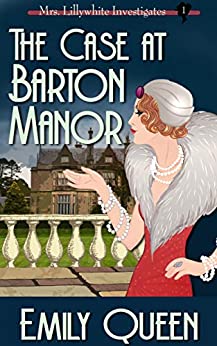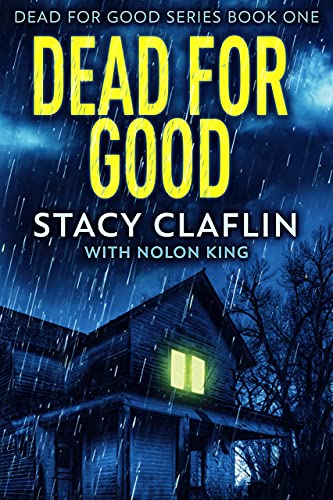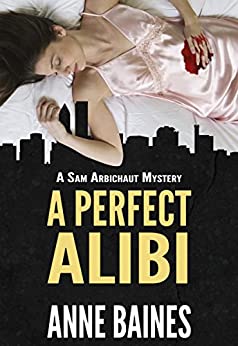 This is not so much a book review of the story written by Emily Queen, but more about what I, as an author, learned from reading it. To me, this fits more into a reader's diary, but I'm calling it a book review more to categorize it for my blog readers. The name of the book is The Case at Barton Manor , a 1920s Murder Mystery by Emily Queen.
This is not so much a book review of the story written by Emily Queen, but more about what I, as an author, learned from reading it. To me, this fits more into a reader's diary, but I'm calling it a book review more to categorize it for my blog readers. The name of the book is The Case at Barton Manor , a 1920s Murder Mystery by Emily Queen.
This was a historical mystery, which is not my favorite genre, but I was sold by the cover, which pulled me in right away. I love this art form and the book just appealed to me. Although I'm not a historical fiction fan, I do love the fashions of the 1920s and I thought this would be a fun read.
As an author, it's also a confirmation of what every how-to-sell-books video has said: The book sales depend greatly on the covers and the story descriptions.
READABILITY:
I found the book a little harder to read because it was a historical mystery. It was harder than a contemporary mystery romance. I believe it is because the language was a bit more formal, which is an accurate reflection of the historical timeframe. I give the author A+ because the language was a good reflection of how much more formal people spoke back in the 1920s. I just noted, as a reader, that it did make it harder to read and took me longer to finish. I found myself having to reread certain parts to make sure I understood what was going on.
The only criticism I have about the book is that by around the 60% mark, I had to go back and make a written list of who everyone was and what role they played in the story. I'm not certain this was even about how the book was written. This may be just a reflection that my mind was wandering too much as I read this story. But I came away noting that maybe as an author, I need to mention the character's name and reference their job or something relevant about them and refer to this once or twice more, especially if they fall to the background during certain parts of the story.
This is not the first time that somewhere in the middle of the book I've had to go back and make a list of who everyone in the story is. I'm not easily discouraged as a reader, but many readers can be. When I read another author's book, I look for things that would stop a reader from reading and I believe getting mixed up as to who everyone is could be a reason to say 'forget it' and move onto the next book.
What I learned as I went back through the book to make my list is that the characters were mentioned by name and usually something about them that was noteworthy in the overall story. So there was no fault for that. But the characters would fall to the back of the story, so to speak, and then when they were mentioned again, I really had forgotten who they were. That's why by 60% through the story, I had about three characters I had completely forgotten who they were.
So my author's note is: When there are more than 3 or 4 characters, I would find a way to reference not only their names a second and third time, but reference something about them as a refresher to how they fit in the story. This sounds easy, right? But this is a fine line to walk as readers who have no trouble keeping track of multiple characters would find this technique repetitive. As I read other books, I will now notice how the authors handle characters who are introduced early on and then make a re-appearance later in the story. I know for sure that one quick mention of a character's name is not enough to implant it into the reader's mind. I'm sure this lesson will be helpful in my own work.
THE STORY ITSELF:
The Case at Barton Manor is classic who-done-it murder mystery. It made me think of Agatha Christie as I read it. So if you are a fan of that style of who-done-it, you will love this book.
The mystery and suspense of who committed the murder kept me reading all the way to the end when the real culprit is revealed. The story, as well as the prose, held my interest as a reader all the way through. The story never lagged or veered off into too much history or too much commentary. The history was peppered throughout the story perfectly. The story moved from beginning to end.
Historical mysteries always have a bit of history running though them, and Emily Queen doesn't disappoint. So fans of historical mysteries will love this one.
BRITISH ENGLISH TERMS:
Kudos to Ms. Queen for including a list of British-to-English translation on common words and terms that are different between the English dialects. For example, a drugstore is referred to as a Chemist. The word 'daft' means a bit stupid or silly. A yard is referred to as a garden. A jumper is a sweater in American English. This was very helpful and it was listed in the Table of Contents.
MY FAVORITE TURN OF PHRASES:
- "We cannot arrive too early, dear," her mother said as if she coined the term 'fashionably late.'
- Often accused of callousness, Vera followed her mother's example and let the opinions of most roll off her back like inconsequential raindrops.
- . . . let her shrug off some of the mantle of sadness constantly draped over her shoulders.
- . . . though there was a tightness around her eyes to attest she still had a lot on her mind.
- . . . plus an air of unattainability that many women seemed to want to challenge.
- Every eye in the room seemed trained on Mrs. Blackburn; most of the men's wide with appreciation, while many of the women's narrowed to slits of envy.
- Mrs. Barton said, her back ramrod straight in her chair, while she wrung her fingers nervously.
- . . . there is another side to that simpering excuse for a man.
The above lines of prose are only about 25% of the ones I had saved to read again. Great lines all throughout the book.
There are six books in this series and I have the next one on my "next up" list.



 This is not so much a book review of the story written by Anne Baines, but more about what I, as an author, learned from reading it. To me, that fits more into a Writer's Diary. The name of the book is
This is not so much a book review of the story written by Anne Baines, but more about what I, as an author, learned from reading it. To me, that fits more into a Writer's Diary. The name of the book is